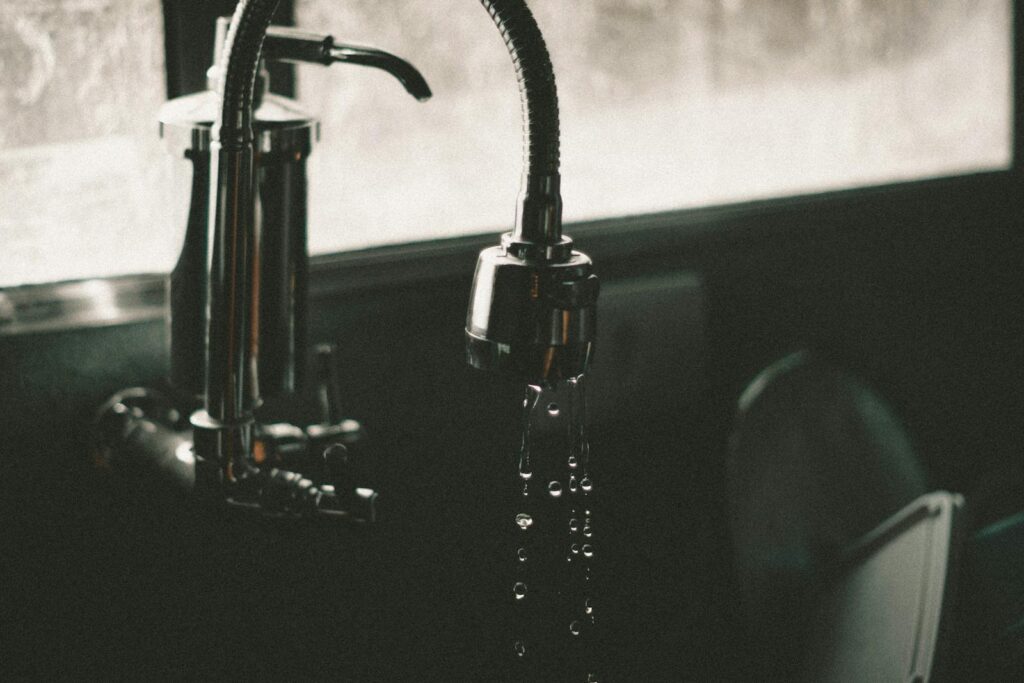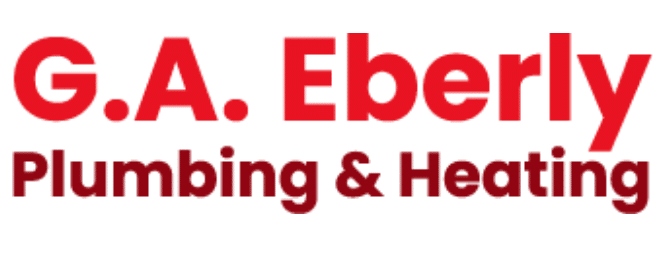As the weather cools down here in Maryland, fall is the perfect time to check your home’s plumbing system. A few simple maintenance steps now can help you avoid costly repairs and emergency calls when temperatures drop. With over 115 years of experience helping homeowners prepare for winter, our family at G.A. Eberly Plumbing & Heating has seen how a little prevention goes a long way.
Winter weather brings unique challenges for your plumbing—frozen pipes, water heater strain, and increased indoor water use can all create problems. The good news is that most winter plumbing emergencies are preventable with the right fall preparation. Let’s explore what plumbing maintenance means and how it can protect your home in Glenarden or Laurel this season.

Photo by Wallace Chuck on Pexels
What Is Regular Plumbing Maintenance and Why Does It Matter?
Plumbing maintenance is the regular inspection, cleaning, and servicing of your home’s water supply, drainage, and heating systems. Think of it like an annual check-up for your house. A professional plumber from out team will check all the vital signs to make sure everything is running smoothly and efficiently. This process helps prevent leaks, clogs, and frozen pipes before they become expensive problems.
The key difference between maintenance and repair is simple: maintenance is about prevention, not just fixing what is already broken. When you schedule routine plumbing maintenance, you invest in peace of mind and protect your home’s value. We have seen small, overlooked leaks turn into major repairs, causing water damage to floors, walls, and foundations that could have been avoided with a simple inspection.
What Does Routine Plumbing Maintenance Include?
A comprehensive plumbing maintenance visit from G.A. Eberly covers all the essential components of your home’s water systems. Here is what homeowners in Laurel and Glenarden should expect from a thorough inspection:
- Inspecting exposed pipes for signs of corrosion, rust, or small leaks that might not be immediately obvious. We check under sinks, in basements, and around water heaters where pipes are most vulnerable.
- Checking water pressure and water heater temperature to ensure your system delivers consistent hot water without working harder than necessary. Poor water pressure often indicates underlying issues that maintenance can resolve.
- Flushing the water heater to remove sediment buildup that reduces efficiency and shortens the unit’s lifespan. This simple step can save you money on energy costs and prevent premature replacement.
- Cleaning drains and testing the garbage disposal to prevent slow drainage and backups. We also check for signs of tree root intrusion in main sewer lines, a common issue in our local neighborhoods.
- Checking toilets for silent leaks using methods like a dye test. These hidden leaks can waste thousands of gallons of water annually.
- Inspecting sump pumps, outdoor faucets, and hose bibs before freezing weather hits. These are critical areas where winter damage most commonly occurs, but they are easy to protect with proper preparation.
A pro tip: avoid using chemical drain cleaners, as they can damage pipes and create more problems. For minor clogs, try baking soda and vinegar, or call a professional for persistent drainage issues.
How Often Should Plumbing Be Serviced?
Most homes benefit from a professional plumbing inspection at least once a year. Fall is an ideal time, as it prepares your system for winter stress. The ideal maintenance schedule, however, depends on several factors specific to your home.
Seasonal maintenance is particularly important. Fall checkups prepare your system for winter, while spring inspections catch any damage that occurred during the cold months. This timing helps you address issues during mild weather when repairs are easier and less expensive.
Older homes in areas like Glenarden and Laurel may need more frequent attention, especially those built before 1980. If your home has galvanized steel pipes or original fixtures, consider twice-yearly inspections. Properties with well water, septic systems, or large families also benefit from more frequent professional maintenance.
Common Plumbing Issues We Prevent
With regular maintenance, we can catch and prevent many common and costly plumbing problems.
Plumbing Leaks
Hidden leaks are among the most expensive issues homeowners face. They can occur behind walls or under floors, going unnoticed for months. Regular maintenance detects these leaks early, preventing water stains, mold growth, and structural damage.
Clogged Drains
Kitchen and bathroom drains accumulate soap scum, hair, and grease over time. Professional drain cleaning keeps water flowing freely and prevents backups. We also identify potential tree root problems in main sewer lines before they cause major blockages.
Frozen or Burst Pipes
Fall insulation of outdoor faucets and exposed pipes is one of the most cost-effective investments a homeowner can make. A burst pipe can cause thousands of dollars in water damage within hours, but it is entirely preventable with proper winterization.
Water Heater Trouble
Regular water heater maintenance keeps hot water consistent and energy bills lower. Flushing sediment, checking the temperature relief valve, and inspecting the anode rod can extend your unit’s life by years while improving its efficiency.
Pipe Corrosion
Routine inspections catch rust and mineral deposits before they cause leaks or reduce water flow. Early detection allows for targeted repairs or replacements that cost much less than emergency fixes.
How Much Does Plumbing Maintenance Cost?
The cost of routine plumbing maintenance varies, but most comprehensive inspections range from $150 to $300. This is one of the best investments you can make in your home. A small maintenance visit now can save hundreds—or even thousands—on major repairs later.
Consider that replacing a water heater can cost $1,200 to $3,000, while annual maintenance might extend its life by five years or more. Emergency plumbing calls during winter can cost much more than the normal rate. At G.A. Eberly, we provide upfront pricing with no hidden fees, so you know exactly what to expect.
Practical Plumbing Maintenance Tips for Homeowners
Between professional visits, you can take steps to keep your plumbing running smoothly:
- Keep drains clear of food waste, grease, and other debris.
- Run your garbage disposal with cold water for 10-15 seconds after grinding stops.
- Insulate pipes and outdoor faucets before freezing temperatures arrive. Disconnect and drain garden hoses.
- Check for dripping faucets and running toilets to prevent water waste.
- Know how to shut off the main water valve in an emergency. Ensure everyone in your family knows where it is.
Helpful Resources and Relevant Links
- Environmental Protection Agency (EPA) WaterSense Program: Learn about water-efficient products and practices to reduce water use and save on utility bills.
- American Society of Plumbing Engineers (ASPE): Access technical resources, training, and guidelines for residential and commercial plumbing systems.
- Homeowner’s Guide to Preventing Sewer Backups: A comprehensive guide from Dodge Insurance providing tips to prevent sewer backups and protect your home.
- Maryland Department of the Environment (MDE) – Water Management: Explore water quality programs and find valuable information on maintaining a safe and healthy plumbing system.
- Energy Star – Water Heater Savings: Discover energy-saving insights and guidance for selecting efficient water heaters for your home or business.
Don’t wait—fix it now before winter hits. The time to prepare your plumbing system is while the weather is still mild, and any necessary repairs can be completed without urgency or weather complications.
Why Choose G.A. Eberly in Glenarden & Laurel?
For more than 115 years, G.A. Eberly has helped Maryland families and businesses maintain efficient plumbing systems that stand the test of time. As a family-owned and woman-operated company since 1909, we know that your home or business deserves a reliable, qualified plumber who treats every property as if it were their own.
Our approach to professional plumbing maintenance goes beyond quick fixes—we focus on routine maintenance, regular plumbing inspections, and preventative strategies to keep your system functioning properly year-round. From slow drains and leaking pipes to clogged shower drains and floor drains, we handle every issue before it turns into significant damage.
What sets us apart:
- Master Technician oversight: Every installation, pipe inspection, and repair is completed to meet Maryland plumbing codes and ensure long-term reliability.
- Full-service trucks: Our local plumbers arrive ready to address emergency repairs, sewer system backups, and septic tank maintenance—all in one visit.
- Water efficiency: We check your pressure regulator, inspect pipes for corrosion or rusted pipes, and help lower your water bill with a more efficient plumbing system.
- Home safety and comfort: Whether it’s inspecting your washing machine hoses, fixing a toilet bowl leak, or checking sprinkler systems and shower heads, we make sure every part of your plumbing works as intended.
- Transparency and trust: Expect honest pricing, professional guidance, and friendly service with every call.
We also help homeowners identify issues early—like using food coloring in the toilet tank to detect leaks, clearing slow drains before they cause backups, and keeping trash cans nearby to prevent clogs from toilet paper or human waste mishandling.
Our deep local experience across Glenarden, Laurel, and neighboring Maryland communities means we understand unique factors like soil conditions, aging sewer systems, and seasonal challenges that affect fresh water access and drainage. Whether you’re dealing with leaking pipes, frozen lines, or a malfunctioning shut-off valve, our qualified plumbers deliver the necessary repairs and ongoing support to keep your system running smoothly.
Don’t wait for a burst pipe or sewer backup—schedule your plumbing service today. With G.A. Eberly, you get 115+ years of trusted expertise in keeping homes and businesses safe, efficient, and worry-free.


